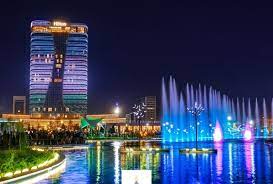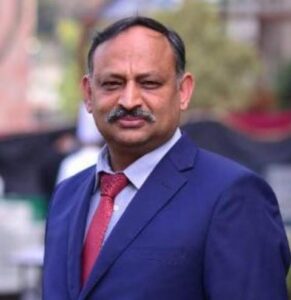
 Muhammad Ramzan Mughal
Muhammad Ramzan Mughal
The approval of constitutional amendments through a nationwide referendum in Uzbekistan is a momentous stride towards political and democratic reforms, exemplifying the nation’s remarkable progress under the leadership of President ShavkatMirziyoyev. The resounding majority vote of 90.21% and the notable participation rate of 84.54% unequivocally establish the authority of the people and unequivocally endorse the new constitution.
These constitutional reforms not only reset President Mirziyoyev’s term count, but also hold the promise of augmented social and legal protections for the citizens of Uzbekistan. Mirziyoyev’s resolute pursuit of economic liberalization, fostering improved relations with the West, and curtailing the powers of the security services have engendered positive changes, effectively dismantling the previously entrenched environment of a police state.
Since assuming power following the passing of his predecessor Islam Karimov in 2016, Mirziyoyev has spearheaded a series of reforms, notably including addressing the pervasive issue of forced labor in the cotton fields. The successful constitutional referendum further solidifies his unwavering commitment to progress and reform. The new constitution, superseding its 1992 predecessor, introduces a marked difference of 65% and encompasses a greater number of articles. Its primary aim is to establish a “New Uzbekistan” characterized by openness, fairness, and the safeguarding of citizens’ rights.
The adoption of the new constitution stands as the cornerstone for ongoing political, economic, and social reforms. Eminent changes, such as the declaration of Uzbekistan as a social state and the explicit protection of individual honor and dignity, underscore the government’s emphasis on human rights and equality. The extension of the presidential term and the provision for two-term candidacy further signify the government’s confidence in President Mirziyoyev’s leadership and vision.
Enacting the “New Social Contract” through the new constitution is anticipated to yield far-reaching socio-economic and political benefits in the future. President Mirziyoyev’s visionary leadership has propelled Uzbekistan onto a trajectory of its “Third Renaissance.” The constitutional reforms pave the way for a “New Uzbekistan” wherein the rule of law, human rights, and freedoms are irrevocably enshrined. The strategic priorities of social reform, social development, social justice, social diversity, and social harmony align harmoniously with the aspirations of the nation.
All in all, the constitutional referendum in Uzbekistan, coupled with the imminent early presidential elections, exemplifies the nation’s steadfast dedication to progress, development, and the well-being of its citizens. The constitution reinforces the state’s unwavering commitment to education, healthcare, and the holistic advancement of families, further underscoring the government’s unwavering focus on the betterment of society as a whole. The constitutional reforms herald a new chapter in Uzbekistan’s history, where political, economic, and social transformations converge to shape a brighter and more prosperous future.
(The writer is President of the Baburi Forum, Islamabad-Pakistan)





